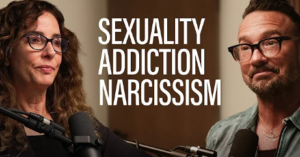Friday, July 20, 2018
FREE CE LECTURE!
1 CE available for LMFTs, LCSWs, LPCCs, LEPs, and psychologists
The majority of pelvic floor disorders are associated with sexual dysfunction and have a significant impact on a person’s quality of life. Many people do not realize pelvic floor dysfunction can affect women, men, transgender and gender nonconforming persons as early as childhood and through the end of life. Studies show that medical professionals, including primary care physicians, gynecologists, and urologists, are unfamiliar with pelvic floor dysfunction and are uncomfortable speaking to their patients about sex. This renders patients under-diagnosed, misdiagnosed, and frustrated. Pelvic floor dysfunction is treatable and proper management will help people restore their pelvic health and improve their quality of life. This is an introductory level course will explain aspects of pelvic floor disorders and treatments.
Learning Objectives:
- Explain pelvic floor anatomy and physiology and associated signs, symptoms, and diagnoses of high and low-tone pelvic floor disorders
- Identify the components of the pelvic floor physical therapy evaluation and treatment process
- Discuss how to screen patients for PFD
- Reference resources to work within an interdisciplinary treatment plan for better patient outcomes
About Stephanie
Stephanie Prendergast is cofounder of the Pelvic Health and Rehabilitation Center, which has 8 locations: San Francisco, Berkeley, Walnut Creek, Los Gatos, West Los Angeles, Thousand Oaks, Lexington, MA and Bedford, NH. She currently treats patients in the West Los Angeles location. Stephanie was first elected to the International Pelvic Pain Society’s Board of Directors in 2002 and in 2013 she was the first physical therapist to be President of the Society. She has authored numerous publications in peer-reviewed journals and textbooks and regularly lectures at medical conferences and in the community on pelvic health-related topics. She is an advocate for people with pelvic pain, pelvic floor physical therapists, and the field of pelvic health. She and PHRC Cofounder Elizabeth Akincilar co-authored the popular book, Pelvic Pain Explained, in 2016. PHRC published an award-winning blog, As The Pelvis Turns, every Thursday. You can find Stephanie on Twitter as @pelvichealth and the Pelvic Health and Rehabilitation Center on Instagram, Facebook, and Pinterest.
This lecture took place at Center for Healthy Sex.
If you have any questions, please e-mail dwagner@centerforhealthysex.com.
Event Disclaimer
This program meets the requirements of the American Association of Sexuality Educators, Counselors and Therapists (AASECT) and is approved for 1 CE credit. This CE credit may be applied toward AASECT certification and renewal of certification. Completion of this program does not ensure or guarantee AASECT certification. Completion of this program does not ensure or guarantee AASECT certification. For further information, please contact info@aasect.org.
Center for Healthy Sex, Continuing Education provider #107699. This course meets the qualifications for 1 hour of continuing education credit for LMFTs, LCSWs, LPCCs and/or LEPs as required by the California Board of Behavioral Sciences. Center for Healthy Sex is approved by the American Psychological Association to sponsor continuing education for psychologists. Center for Healthy Sex maintains responsibility for this program and its content. There is no known commercial support for this program. To request accommodations for special needs, to report grievances, or for any other questions, please contact us at 310-843-9902 or via email: info@centerforhealthysex.com. Certificates of attendance will be emailed upon completion of the course.



